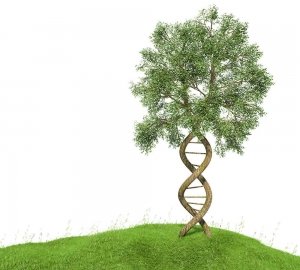Preventing Addiction When You Are Genetically Predisposed

Science and medicine have determined that about forty percent (40%) of an individual’s addiction or substance use disorder arises from their genetic predisposition. Several genes are suspected in passing the “code for addiction” which creates and individual’s dulled response to the brain messenger (neuro-transmitter) dopamine. Family histories and twin studies have for years provided science strong evidence of the inherited addictive predisposition by one generation from the former.
What can I do if one of my parents or grandparents had a drinking or drug problem?
Start with reading more information about addiction/ substance use disorder. Becoming aware of the characteristics, signs and symptoms will help you in the event you begin to lose control over your drug or alcohol use.
Are there risk factors which can lead to or detect the development of a substance use disorder/ addiction?
Interpersonal conflicts and/or neglect within families and other relationships can coincide with addiction/ substance use disorder. Impulsive or emotionally reactive behavior, emotional instability, depression or anxiety are also common. Trauma, unresolved grief or shame often correlate with the development of substance use disorders. Using friends and access to drugs and alcohol enable increased use and the development of addiction.
Are their signs or symptoms that I should watch which can lead toward or indicate the beginning of a drinking or drug problem?
Behaviors indicating a problem or the development of a problem include: drinking under the influence; riding in a car driven by someone under the influence; drinking or using more than attended; forgetting or being embarrassed about drunken or drugged behaviors. One of the best indications of addiction/ substance use disorder is continuing to drink or use after encountering consequences from drug or alcohol use (i.e. shame, guilt, loneliness, illness, hang-overs, legal or career entanglements, interpersonal problems).
What can I do if I believe that a relative or child might be developing the “family affliction” of addiction?
Define addiction as an inherited disease. Take the shame and stigma out of it. Be open and honest, and talk about the family secrets openly. It is only by looking at the facts in the light of day do we start to develop a real understanding and plan. Don’t keep secrets but also be respectful and compassionate.
Can I or my family take steps toward preventing addiction/ substance use disorders from developing?
Many people who come from alcohol or addicted families avoid alcohol and drug use. If you don’t drink or use drugs, addiction can’t develop. (Watch for overeating, compulsive spending, sex or gambling, or excessive risk-taking). If you can’t drink or use in moderation, talk with someone in recovery or a professional.
Talk openly about your concerns and plans to keep track of your or other’s alcohol and drug consumption and related behaviors. Share your concerns and plans with loved ones and people with whom you share alcohol or drugs. If you are losing people with whom you can share these concerns, seek help.
Set a plan regarding drinking and using occasions and stick to them. If you can’t follow-through, ask for help from someone in recovery or a professional.

